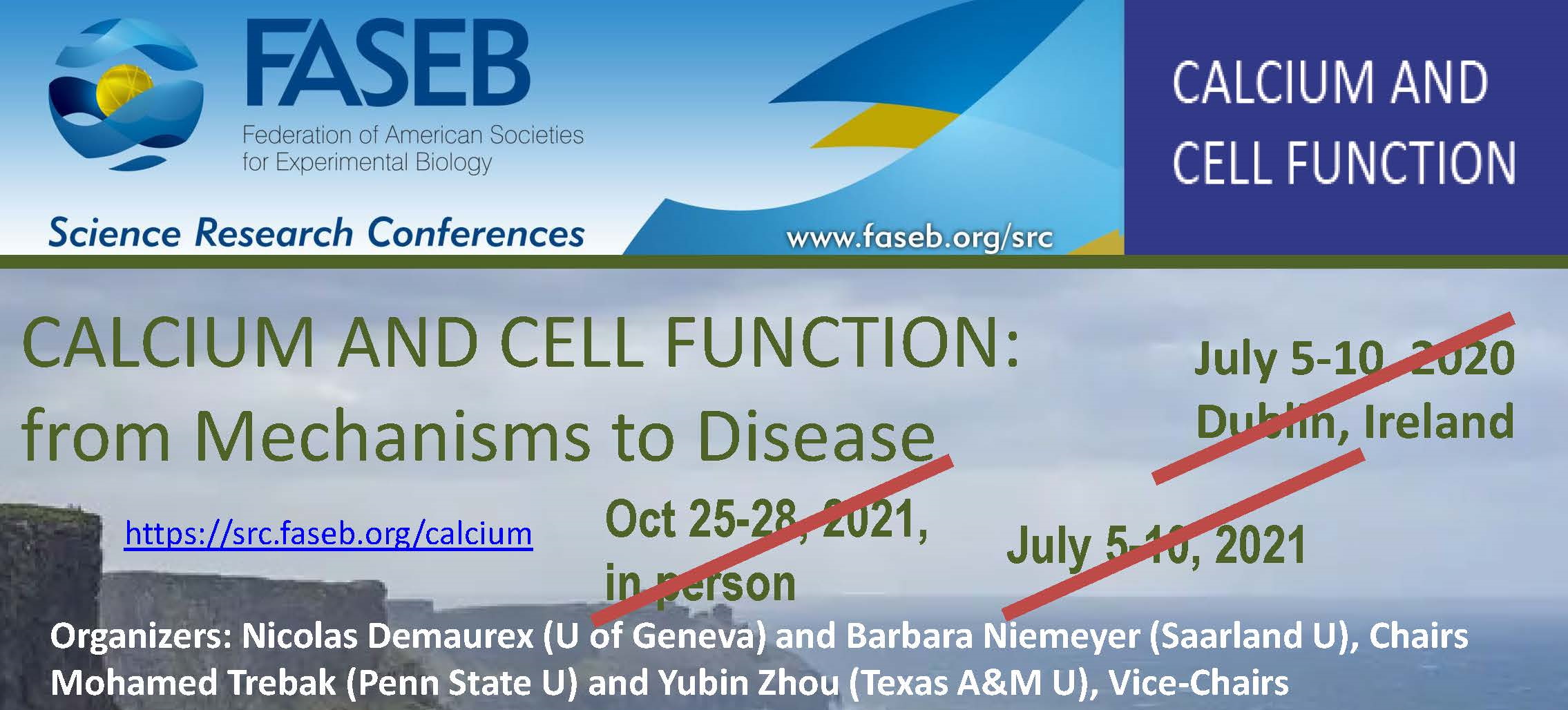
16 December 2021
When Professors Barbara Niemeyer and Nicolas Demaurex agreed to organise the Federation of American Societies for Experimental Biology (FASEB) conference on Calcium and Cell Function, little did they know how adaptive they would need to be. As the coronavirus pandemic rumbled on, it became increasingly clear that they would need to make some tough decisions about how their meeting was to go ahead.
2020 was going to be the year of the 18th FASEB conference on Calcium and Cell Function, an event that has been held every two years since 1987. Calcium signalling is incredibly important for our cells, since it plays a key role in signal transduction pathways. As Nic put it, calcium “is really at the core of physiology”, and experiments demonstrating the significance of calcium in processes such as heart cell contraction date back to the nineteenth century. Current research is also often translational, since several human diseases are linked to aberrant calcium signalling.
Barbara and Nic originally intended to hold the conference in Ireland, an accessible location for attendees from the large calcium research communities of the USA and Europe. With the uncertainties of the pandemic in 2020, both quickly decided to move the conference to summer 2021. Again, travel restrictions were limiting, but they were optimistic about having an in-person meeting in October 2021. However, with persisting uncertainties surrounding the coronavirus situation leading to a low number of registrations, Barbara and Nic were forced to make the difficult decision to move the conference completely online.
However, they found that the online format actually presented several benefits. More people were able to attend who might otherwise have missed out due to financial or visa-related issues, or caring responsibilities. “I think, for students, [the online format] is nice”, said Barbara. “It really reaches out to more people who can’t travel due to costs or family reasons”. Barbara and Nic believe that online and hybrid meetings make science more open and accessible for a broader section of the community. They are also, of course, advantageous from a sustainability perspective. There are no carbon emissions from travel, and there is no waste generated at the conference venue. Nic and Barbara found that delegates being in different time zones sometimes posed a challenge, but the overall ease of attending online meant that they had a turnout of 200 researchers, whereas they would usually expect only around 120.
Of course, online meetings don’t have the same interactions as in-person events. Barbara pointed out that “at the end, after the last talk, you just click ‘end call’ and that’s it”. Usually there would be some networking at the end of the conference, and heartfelt goodbyes. However, networking in the online space was better than Nic had expected. There were three career development sessions at the meeting, and he felt that they were almost as interactive as they would have been in person. In particular, he noticed that early-career researchers appeared more confident to pitch in with questions. There was also concern that some presenters might be reluctant to share unpublished data, since many talks and posters were available online after the conference ended, but unpublished work still made a strong appearance.
Following the transition to a fully online event, their costs were reduced, and they were therefore able to use some of their budget to refund the attendance fees of students presenting at the conference. In the future, Barbara hopes more meetings will be able to fund the attendance fees of early-career researchers via a needs-based system. Looking ahead to the next Calcium and Cell Function conference, Nic and Barbara are excited to reconnect with their colleagues at the 19th meeting in 2023, in whatever format that conference takes.
Did you know that The Company of Biologists offers Meeting Grants to support in-person or virtual meetings, workshops, and conferences?
Two different grants are available depending on the size of the event and the level of funding required. Following the launch of The Company of Biologists’ Sustainability Initiative, we also offer grants to organisers of a variety of events to assist with the cost of innovative ideas that will enable events to become more sustainable. You can find out more and view the full range of grants that we offer by visiting our grants page.








You must be logged in to post a comment.